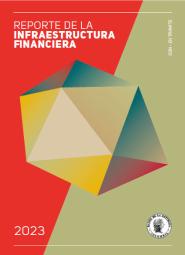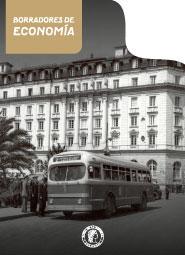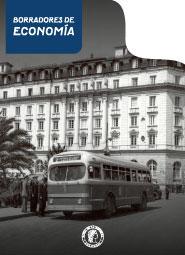Functions of the Board of Directors as monetary, exchange and credit authority
"Article 16. Atributions. It corresponds to Banco de la República to study and adopt the monetary, credit and exchange measures to regulate monetary circulation and, in general, the liquidity of the financial market and the normal functioning of the internal and external payments of the economy, safeguarding the stability of the currency’s value.
For such purpose, the Board of Directors may:
[1]a) Fix and regulate reserve requirements for the various categories of credit establishments and, in general, of all the entities which receive at sight, at term or savings deposits, to fix their remunaration or not, and to establish sanctions for infringement of the norms regarding this matters. For these purposes, aspects such as the kind and period of the operation subject to reserve may be considered. Reserve requirements must be represented by deposits in the Banco de la República or cash holdings;
b) Arrange the carrying out of open market operations with its own securities, with public debt securities or with those authorized by the Board of Directors, in these cases in legal tender or forerign currency; determine the intermediaries for these operations and the requirements that these must meet. In developing this faculty it can dispose the realization of repo operations in order to regulate the economy’s liquidity;
c) Establish, through norms of general nature, the financial conditions to which public entities authorized by law to acquire or place securities must subject themselves in order to insure that these operations take place within market conditions. Without the compliance of these conditions such securities cannot be offered or placed;
d) Establish, in exceptional situations and for periods that do not add up to more than one hundred and twenty (120) days per year, limits to the growth of the portfolio and other active operations, such as backings, guarantees and acceptances, carried out by credit establishments;
[2]e) Establish, in exceptional situations and for periods that do not add up to more than one hundred and twenty (120) days per year, the maximum remuneratory rates of interest that credit establishments can charge or pay their customers over all active or credit operations, without inducing real negative rates. The maximum rates of interest that may be agreed to for operations in foreign currency shall continue being subject to the determinations of the Board of Directors.
These rates may be different according to aspects such as the kind of operation, the destination of funds and their place of origin.
Credit establishments which charge interest rates in excess of those established by the Board of Directors are subject to the administrative sanctions established by the Board in a general way for these cases;
[3]f) Fix the methodology for the determination in legal tender of the Unidad de Poder Adquisitivo Constante UPAC, endeavouring that this also reflects the movements of the rate of interest in the economy;
Ruling C- 383 27th May 1999 of the Constitutional Court (see quote [5-1]).
g) Regulate interbank credit to meet transitory liquidity requirements of credit establishments;
h) To exercise the functions of exchange regulator envisaged in paragraph 1 of article 3 and in articles 5 to 13, 16, 22, 27, 28 and 31 of Law 9, 1991; .[4]
[5]From the Administrative Court of Cundinamarca, 29th July 2004.
i) Arrange the intervention of Banco de la República in the foreign exchange market as a buyer or seller of foreign currency, or the security issuance in foreign currency. Likewise, determine the exchange rate policy in agreement with the Finance and Public Credit Minister. In the case of disagreement, the State’s Constitutional responsability to safeguard the mantainance of the purchasing power of the currency shall prevail;
j) Issue previous opinion in favour of the monetization of the foreign currency originated in the payment of temporary surpluses dealt with in article 31 of Law 51,1990, and
k) Issue an opinion, when it considers it necessary and during the legislative procedure, regarding the amount of rsources of internal and external credit included in the budget project with the purpose of complying with the mandate envisaged in article 373 of the Political Constitution.
Paragraph 1. The functions described in this article will be implemented by the Banco de la República without detriment of the functions attributed to the national Government by the Constitution and the Law.
Paragraph 2. The General Treasury of the Republic cannot be managed according to monetary control criteria.
[6]Paragraph 3. Districts and Municipalities can make use of the faculties laid down in point b) of article 5 of Law 86 of 1989, in order to finance directly the works and acquisitions mentioned by this law. The respective Councils will regulate the collection of the resources mentioned by this law and will determine the starting date for charging resources.
Ruling C-070 23rd February 1994 of the Constitutional Court.
[1] The text in Italics (Article 16, point a) – partial-) was declared reasonable, under certain conditions, by means of Ruling C-827 of 8th August 2001 of the Constitutional Court. Presiding Magistrate - Alvaro Tafur Galvis.
[2] The text in Italics and bold (Article 16, point e) partial) was declared unreasonable by means of Ruling C-208 of 1st March 2000 of the Constitutional Court. Presiding Magistrate – Antonio Barrera Carbonell.
[3] The text in Italics and bold (Article 16, point f) partial) was declared unreasonable by means of Ruling C-383 of 27th May 1999 of the Constitutional Court. Presiding Magistrate – Alfredo Beltrán Sierra.
[5-1] By means of Ruling C-955 of 26th July 2000 (Presiding Magistrate – José Gregorio Hernández Galindo) the Constitutional Court assigned the Board of Directors with the function of developing the methodology for the determination of the legal tender value of the unit of real price (URP) established by Law 546 of 1999. This unit replaced the Unit of Constant Purchasing Power (UCPP). The norms governing the UCPP system were declared unreasonable by means of Ruling C-7000 of 16th September 1999 of the Constitutional Court. Presiding Magistrate – José Gregorio Hernández Galindo.
[4] Law 9ª of 1991, paragraph 1 of article 3 and articles 5 to 13, 16, 22, 27, 28 and 31 of Decree 39634 of 17th January of 1991. Page 1.
[5] First instance ruling: Annulment and re-establishment of Banco Davivienda S.A’s right against the Banking Superintendence and the Nation – Ministry of Finance and Public Credit. Presiding Magistrate – Hugo Fernando Bastidas Bárcenas. Ref. 02-0036.
[6] The text in Italics and bold (Article 16, paragraph 3) was declared unreasonable by means of Ruling C-070 of 23rd February of 1994 of the Constitutional Court. Presiding Magistrate Hernando Herrera Vergara.





















































